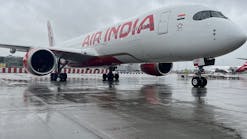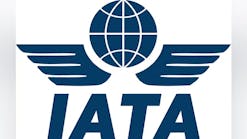July 30--He flew 58 missions during World War II and never thought he'd live to see 21. When he died Monday at age 93, Theodore "Dutch" Van Kirk was the last of the Enola Gay crew, a team that flew one morning to a city named Hiroshima on a mission that would hurl the world into the atomic age.
Van Kirk, who lived in Charlotte from 1972 and 1978 and whose son Larry still lives here, was the navigator of the B-29 Superfortress that dropped the first atomic bomb on Aug. 6, 1945, hastening the end of World War II. He died in Stone Mountain, Ga., near Atlanta, where he had retired after a 35-year career with the chemical company DuPont.
Van Kirk was one of two Enola Gay fliers with Carolina connections. Bombardier Tom Ferebee, who died in 2000, was a farm boy from Mocksville in Davie County.
Van Kirk's first bombing raid over Europe was in 1942 when he was 20. "After my first three missions, I said, 'I'm never going to live to be 21,' " Van Kirk once told the Observer.
But he survived 58 combat missions, losing three planes. He was back in the United States, teaching other navigators the craft in 1944 when the pilot he'd flown with in Europe, Paul Tibbets, invited him to join a top-secret bomber group, the 509th.
No one told them exactly what they were doing or used the word "atomic." But Van Kirk said the crew figured it out quickly based on obvious clues -- their base was swarming with nuclear scientists and their planes had only one hook in the bomb bay.
"If you were in the 509th and didn't figure out you were going to drop an atomic bomb, you were pretty stupid," said Van Kirk, who last visited Charlotte in December when he spoke at the Carolinas Aviation Museum.
Mission to Hiroshima
At 2:45 a.m. on Aug. 6, 1945, the Enola Gay rose into the black sky from the South Pacific island of Tinian and Van Kirk guided the B-29 toward the Japanese mainland.
It was droning at 10,000 feet over the broad expanse of the Pacific when the first rays of dawn rose upon it. "I never saw such a beautiful sunrise in my life," Van Kirk said. "It was a beautiful day."
It was nearly 9 a.m. when Hiroshima, a sprawling industrial city of 400,000 souls, crept into view. There was tension in the aircraft -- no one knew whether the bomb would work or whether the plane would survive the blast if it did.
Ferebee released the bomb and the Superfortress lept into the air, free of its heavy burden.
Ferebee stared into the bomb sight. "He sat there and said, 'It's right on the track,' " Van Kirk said. Col. Paul Tibbets swung the plane into a gut-wrenching turn to escape the blast.
Forty-three seconds passed uneventfully as the Enola Gay's propellers clawed into the sky to get away.
Then the blast
"First indication we had the bomb worked was the bright flash," Van Kirk said. "Like being in a dark closet with a camera flashing."
When the blast wave hit the plane, someone called out, "Flak!" thinking they were being hit by anti-aircraft fire. But then the crew could see the shock waves coming at them "like a pebble dropped in a still pool," Van Kirk said.
He turned back to look and Hiroshima was gone, lost in a plume of thick black smoke, "You could only see a few fires burning on the outskirts."
A mushroom cloud roiled above their 30,000 foot altitude, so vast it was still visible in their flight path more than 250 miles away. About 80,000 citizens were instantly vaporized and the overall death toll months later was reckoned at about 150,000.
A 'confirmed peacenik'
Like the other members of the crew, Van Kirk always maintained that the mission wound up saving more lives than it cost because it hastened the end of the hostilities and ended the war without an invasion of Japan's mainland.
But personally, he became an advocate for an end to war, describing himself as a "confirmed peacenik" to groups he'd speak to.
"I tell them, 'Don't get involved in another war,' " he said. "I saw the first atomic bomb go off. I don't want to see another."
Van Kirk will be buried in his native Northumberland, Pa., on Tuesday, a day before the 69th anniversary of the mission. Joe Depriest, David Perlmutt, Ely Portillo And Maria David Contributed.
Copyright 2014 - The Charlotte Observer




